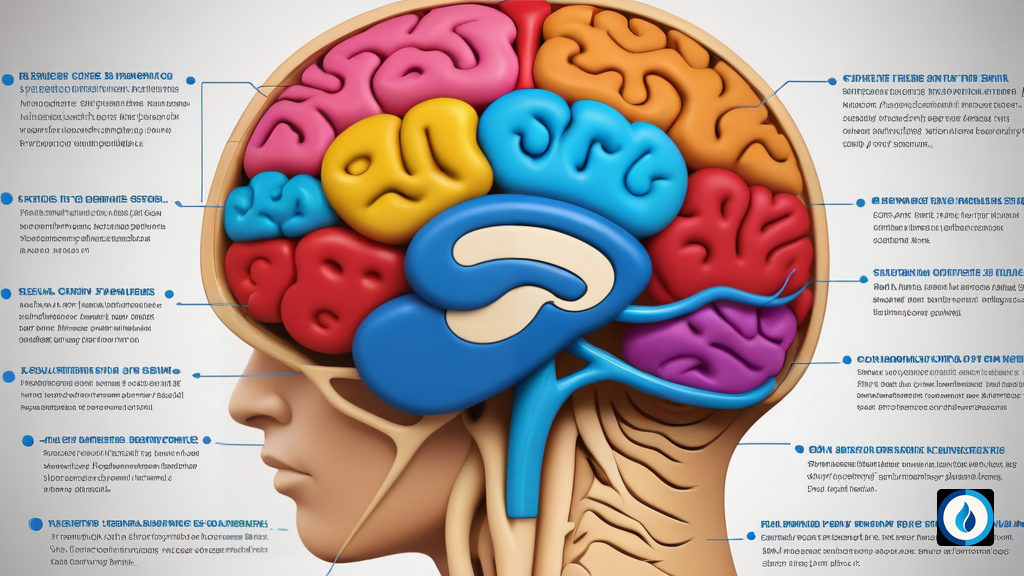Guarding the Brain Against Trauma with Glutathione Precursors
In today’s world, a significant proportion of injury-related fatalities in the United States stem from traumatic brain injury (TBI). While TBI can affect anyone, individuals engaged in contact sports, military activities, children, and the elderly face a higher risk. TBI manifests as a result of varying degrees of mechanical force to the head, categorized as blast, blunt, or ballistic. The initial impact leads to primary injury, including diffuse axonal injury, internal bleeding, swelling, and neuronal cell death. Subsequently, secondary injury unfolds over a period, marked by neuroinflammation, disruption of the blood-brain barrier, oxidative stress, mitochondrial dysfunction, neuronal apoptosis, and other adverse effects within the brain.
The Role of Free Radicals in TBI
A key contributor to secondary injury post-TBI is the damage inflicted by free radicals, primarily reactive oxygen species (ROS) and reactive nitrogen species (RNS). These detrimental radicals mainly originate from dysfunctional mitochondria and neuroinflammatory cells, posing a grave threat to the brain’s well-being. The aftermath of TBI disrupts cellular metabolism, leading to an excessive production of ROS from impaired mitochondria. This disruption in redox balance results in a depletion of crucial endogenous antioxidants, paving the way for a surge in free radicals. Consequently, neurons and glia struggle to counteract the surplus ROS and RNS, leaving the brain vulnerable to oxidative and nitrosative stress.
Depletion of Glutathione Amplifies Secondary Injury
Antioxidants play a pivotal role in thwarting free radical formation and combating oxidative and nitrosative stress post-TBI. Glutathione (GSH), a vital tripeptide, serves as a significant antioxidant shield that safeguards neurons from free radical harm in the brain. GSH peroxidases (GPx) utilize GSH to neutralize ROS, converting it to an oxidized form (GSSG) while reducing hydrogen peroxide. Glutathione reductase (GR) then employs NADPH to restore the depleted GSH pool by reducing oxidized GSSG. The GSH to GSSG ratio serves as a critical gauge of the cell’s ability to manage oxidative stress and sustain its redox equilibrium.
Insights from Research Studies
Studies have shown a decline in brain GSH levels following TBI, heightening neurons’ vulnerability to free radical-induced damage. Research by different groups has underscored the impact of GSH depletion post-TBI. For instance, investigations by Ansari et al. revealed a time-dependent reduction in the GSH/GSSG ratio and GPx and GR activities in a moderate cortical contusion TBI model. Clinical studies by Bayir et al. also confirmed diminished GSH levels in infants and children following severe TBI.
Exploring the Potential of Glutathione Precursors in TBI Management
In light of the detrimental effects of GSH depletion in TBI, strategies to bolster the brain’s GSH reservoir emerge as promising avenues. GSH precursors, such as N-acetylcysteine (NAC), play a crucial role in replenishing GSH levels post-TBI. Studies have demonstrated the neuroprotective effects of NAC in mitigating oxidative stress and preserving neuronal integrity in TBI models.
Evaluating GSH Precursors in TBI Treatment
Research endeavors have delved into the efficacy of various GSH precursors in alleviating secondary injury post-TBI. Noteworthy compounds like S-nitrosoglutathione (GSNO) have exhibited remarkable potential in combating oxidative stress and restoring cognitive functions post-TBI. Furthermore, studies on γ-glutamylcysteine ethyl ester (GCEE) have highlighted its ability to upregulate GSH production in the brain, showcasing its neuroprotective properties.
Harnessing the Preventative Power of GSH Precursors
While many studies focus on the restorative effects of GSH precursors, exploring their preventative capabilities against TBI remains crucial. Recent investigations involving a non-denatured whey protein supplement, Immunocal®, have shown promising results in preventing TBI-induced secondary injuries and improving motor and cognitive functions post-TBI. Immunocal®’s ability to enhance GSH levels and mitigate oxidative stress underscores its potential in safeguarding high-risk populations from the repercussions of TBI.
Implications for Future Research and Clinical Applications
The collective evidence on GSH precursors as neuroprotective agents post-TBI suggests a promising path towards mitigating secondary injury and enhancing recovery outcomes. Further exploration of compounds like Immunocal® and their impact on motor and cognitive functions post-TBI could pave the way for innovative clinical interventions. By bolstering GSH levels in the brain, individuals may stand a better chance at combating the long-term effects of TBI and reducing the risk of neurodegenerative conditions like Alzheimer’s disease.
